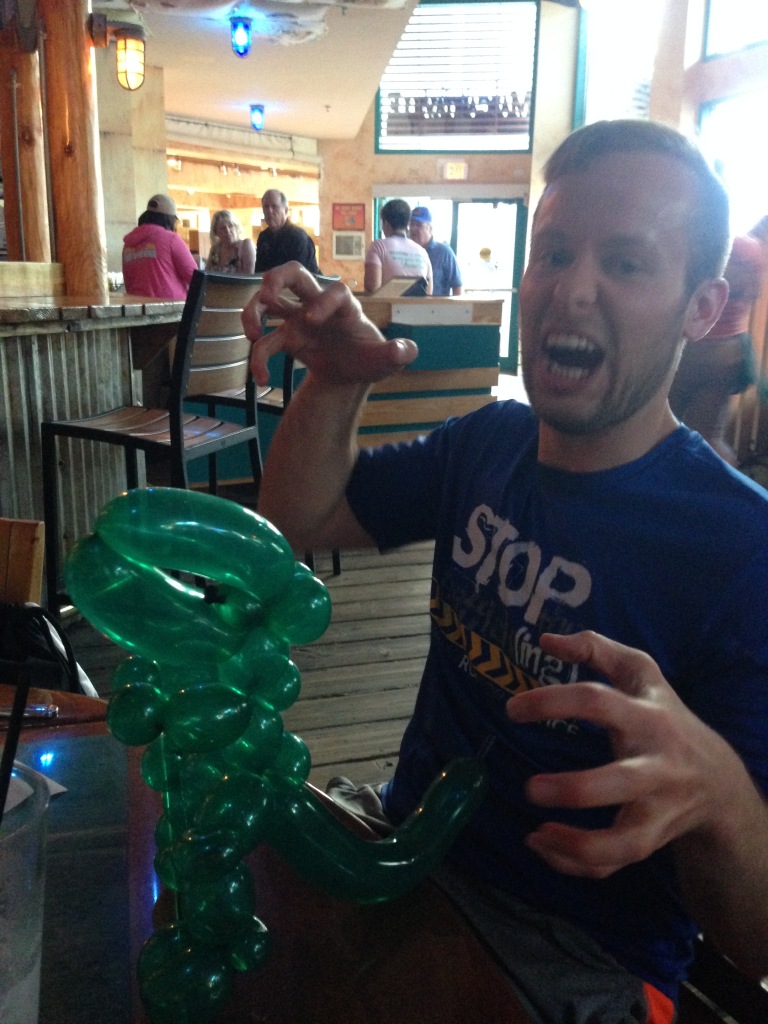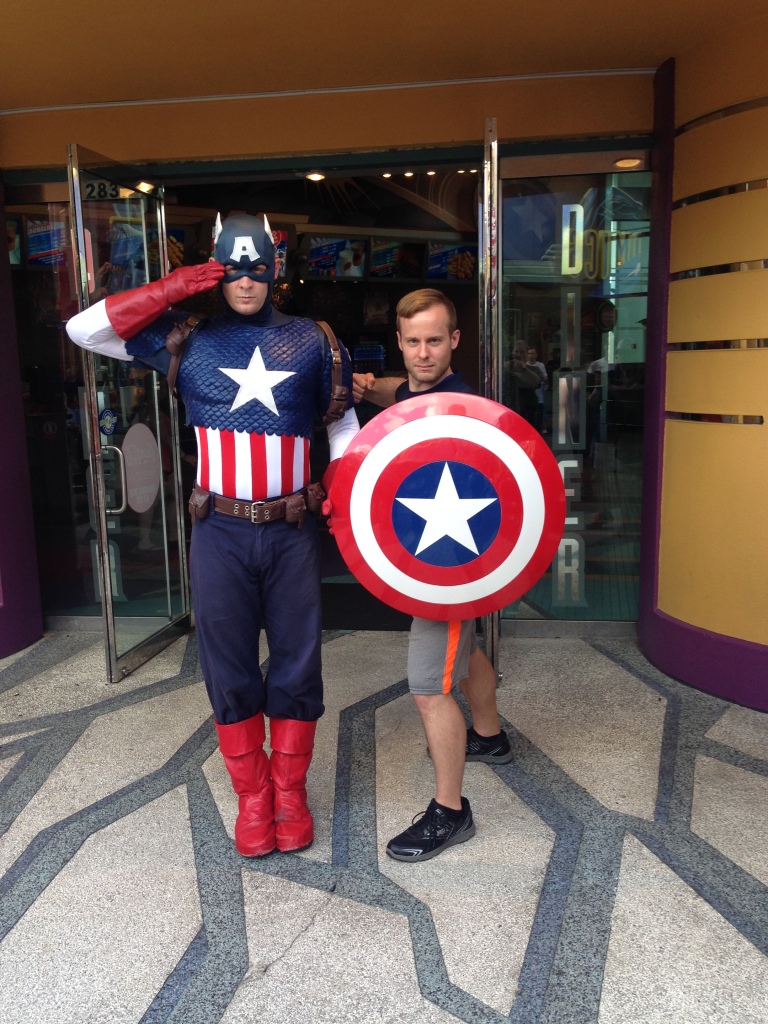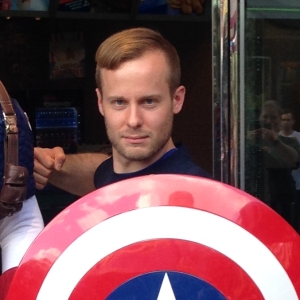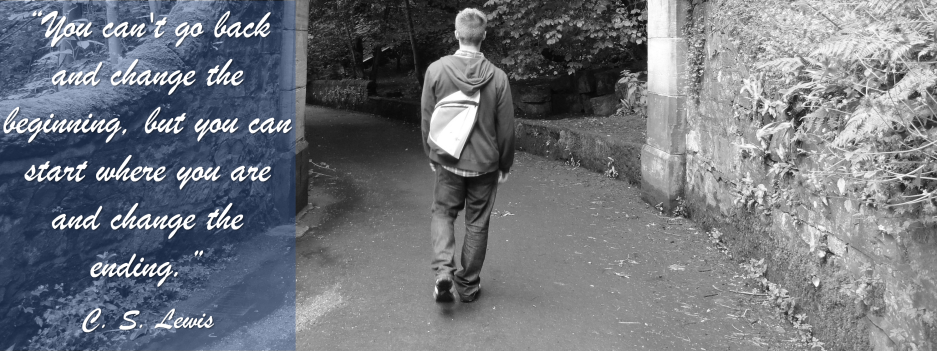
Header image credit: me // Collage image credit: top left: Jostens (I think); top middle: Corrin Saintey Photo; the rest: me
I’m a scientist by training and a writer by passion; I’m a musician and athlete by hobby and an amateur historian and philosopher by necessity; I’m a romantic at heart and a theologian by pursuit; I’m a learner by nature. I’m a renaissance man.
And I believe that a well-balanced life, focusing on holistic health—body, mind, and soul/spirit—is the key to a happy, full life. And that’s what Jesus wants for us. More than that, it’s what He came for: “that [we] may have life and have it abundantly” (John 10:10, ESV). And that’s my desire for all of us, too: to be abundant life livers.
I have a Ph.D. in psychology (cognitive psychology, to be specific), with an undergraduate background in psychology, biology, and some chemistry, so I am well versed—and broadly so—in the sciences. Somewhere along the way to those science degrees, I discovered that I love to read and write, to the point that I like to call myself a frustrated English major: were I able to do college over again, I would add an English major (or at least a minor). There’s just something about reading a good book and writing a good essay (the latter preferably being about the former). In a beautiful blend of these passions—psychology and language—I especially enjoy learning and writing about psychological phenomena, particularly those related to stress, motivation, and well-being. I even wrote a book on stress management that’s available on Amazon.
I have been involved in music since I was nine, doing orchestra (only for a year, so maybe that doesn’t really count), band, choir, and musical theatre. I take voice lessons and occasionally do gigs playing in pit orchestras for musical theatre productions. So while I may not make a living as a performer, I have been trained to perform and appreciate the performance arts. (I have a great appreciation for the visual arts as well, but I’ve just never been very good at them, unless you count pumpkin carving.)

Image credit: me
My foray into fitness has been the most recent of my major pursuits, as I was never been big into sports or competitive athletics and was living a pretty unhealthy lifestyle until about halfway through my time in undergrad. But once I started getting into fitness (it all started with running—shout out to all my runners!), I came to realize that I really enjoy working out and that my body responds really well to it. So after many years as a fitness enthusiast, I jumped deeper into it and became a certified group fitness instructor. I believe that cross-training is key to a healthy body (a body that’s trained for everything is ready for anything, as I like to say), so I take a renaissance man approach to fitness as well, teaching classes that pretty much span the spectrum, from strength training to mixed martial arts to dance.
Thus end the domains wherein I have more formalized training. The other domains are ones I have pursued independently and/or at my leisure, as opposed to in a formal academic or professional setting, so I feel a slight twinge of conviction in labeling myself a renaissance man, for I am much stronger in some areas than I am others; and, being one who highly values honesty and integrity, I don’t want to advertise myself as more than I am or create a false persona. But, lack of formal training should not nullify my—or anyone else’s—efforts in these or other domains, especially when they have been undertaken with a sincere heart and an earnest desire to learn and grow.
I haven’t done much rigorous study of history, and I’m no philosopher in the academic sense, but I do appreciate learning about history and philosophy, and, more importantly, I highly value their importance as disciplines and as approaches to learning. After all, those who don’t know history are doomed to repeat it, and it’s hard to know who we are or where we’re going without knowing where we’ve been. And it is philosophy that helps us make, critique, and understand logical arguments; it is philosophy that allows us to reason; it is philosophy that helps us tackle the questions that science is unequipped to answer. So, in my own ways, I study history and philosophy. I love to travel and visit important historical sites; I enjoy reading and/or watching biographies, historical accounts, and other documentaries, and I enjoy works by the great writers and thinkers; and, finally, I try to love my life in a logical, thoughtful, consistent, and wise way—that is, I am a philosopher in the sense that the Greek roots of that word would seem to entail: I love (phileó) wisdom (sophia).
Though I can come across very much as the rational/intellectual type, and while I sometimes am not very in tune with my own emotions (and must sometimes process my emotions rationally), I am, in fact, quite a sap, and I consider myself very empathic. I love a good love story; I care about others; I am a loyal and thoughtful friend; I realize the importance of emotional health to one’s overall well-being. But, I also understand that emotions can sometimes be deceptive, and they certainly do not make for valid argumentative points (that’s where the philosophy comes in), so they need to be taken with a grain of that oft-mentioned cautionary salt. Oh, and to balance out all of this serious- and deep-sounding stuff, I have a great sense of humor. Sometimes it’s witty, sometimes it’s horribly punny, and sometimes it’s a little irreverent; but, regardless of the flavor it takes in the moment, I do so love to laugh and have fun.



Image credit: me
Finally, I am a theologian and a man of faith. I love God and His Word and I love knowing more about Him and pursuing Him through studying His Word, the Bible, which is Truth. I know that’s increasingly taboo in today’s society, especially in academic circles, but that’s a big part of me, and there’s no denying who I am (see my above point about living consistently). Besides, I am of the firm opinion that science, when appropriately practiced and applied, and theology, when correctly interpreted, are not only not at odds with one another but, in fact, corroborate and inform one another.

Image credit: me
In short, I’m a product of the liberal arts. Before I knew what the liberal arts model was, I valued that approach to education, wanting and loving to learn everything. Before I knew what it was to be a renaissance man, I applied that approach to life, seeking out diverse interests and practicing diverse skills. When I went to a music-loving liberal arts college (Luther College—go Norse!), I thrived in the diversity and rigor of the academic atmosphere that still allowed—more than that, encouraged—me to pursue my love of music, appreciating the value it brings to life and education. And now that I have seen even more of life, I increasingly value this liberal arts approach. Yes, I understand that there is danger in being a jack-of-all-trades, for he is master of none; that is clearly evident in my life. As I hope to have made clear, I’m no master of history or philosophy or athletics; instead, my expertise is in psychology—cognitive psychology, to be specific, for one must be specific for a Ph. D.—but even there, I am no master, because there is too much to learn. And there always will be. In every field. Of every discipline. But that’s what makes learning fun: there’s always more to learn!
Yet, despite the necessary sacrifice of depth in the pursuit of breadth, still, I firmly believe in a liberal arts approach to learning. For one thing, I just love to learn, so I’m happy to learn anything. But, more than that, I firmly believe that we best understand things when we understand them holistically and in context, knowing how they relate to other things. Here’s an example from my field of cognitive psychology: psychological phenomena depend on the brain, and since the brain is a biological organ, psychology is therefore constrained, affected, and determined by biology; thus, it’s impossible to have an accurate, holistic, and complete understanding of psychology without at least some knowledge of biology. The same can be said for biology’s relationship to chemistry, chemistry’s to physics, and physics’ to math. Thus, knowing about one discipline informs and enables your knowledge of other disciplines. In short, the more you know, the more you can know. So that’s why I love to learn; that’s why I continue to learn—about life, about logic, about love, about the Lord, about everything. That’s why I’m a lifelong learner. That’s why I’m a renaissance man.
Yours truly,
D. R. Meriwether
Renaissance Man and Abundant Life Liver


Image credit: left: me; right: royalty-free/public domain
I wasn’t trying to recreate that image, but, hey, I got kinda close, didn’t I? 😉

